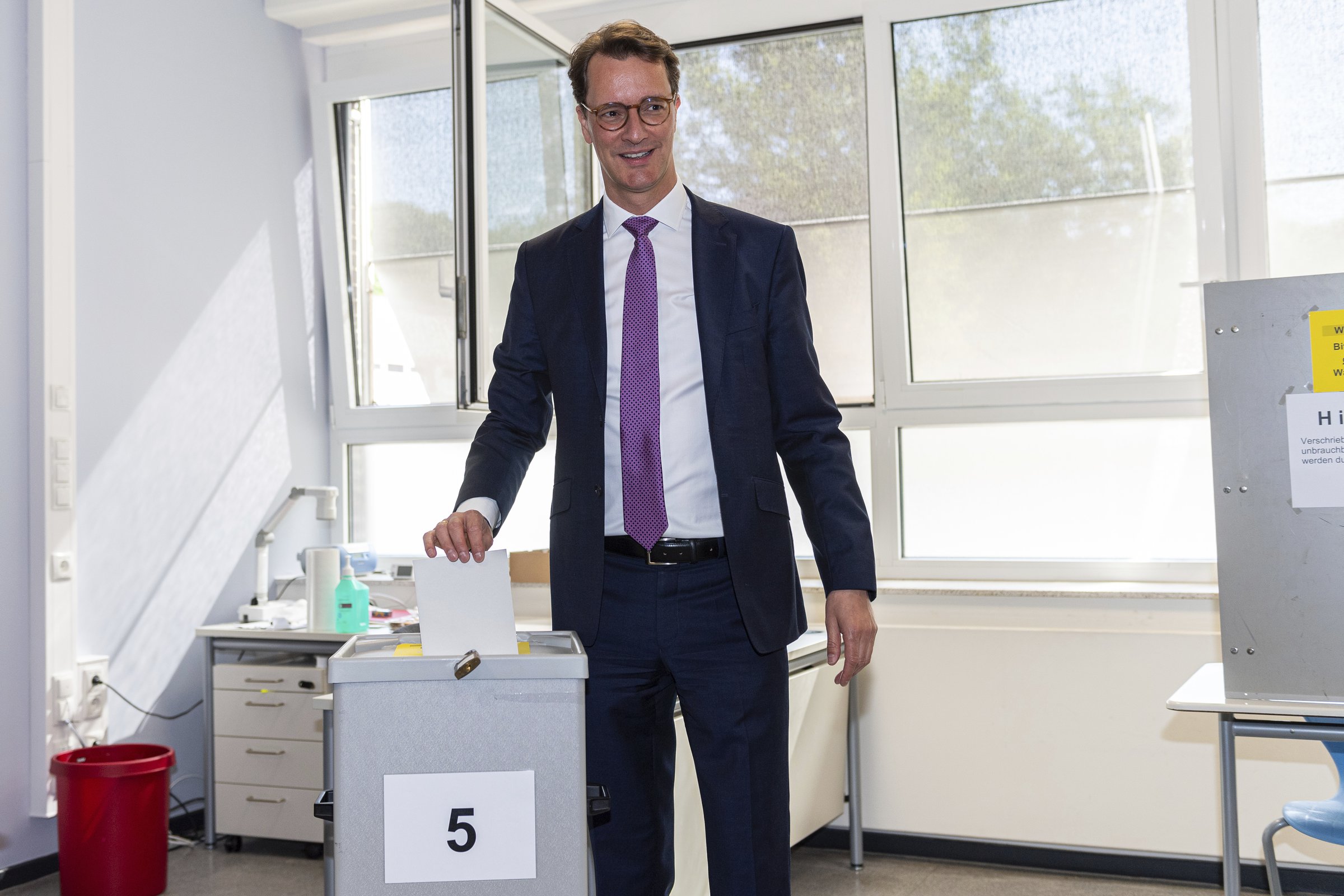BERLIN -- Voters backed the incumbent conservative governor and dealt a blow to Chancellor Olaf Scholz's Social Democrats on Sunday in Germany's most populous state, projections based on partial counts showed.
Figures published by public broadcaster WDR forecast the Christian Democrats making small gains in the North Rhine-Westphalia state election to take 35.7% of the vote.
The Social Democrats slumped to 26.7%, while the environmentalist Greens more than doubled their share with 18.2% -- a record for the party in the state.
The pro-business Free Democrats saw a big drop in support and were on course to get 5.6% of the vote. Its national leader, German Finance Minister Christian Lindner, called it a "disastrous defeat" for his party.
The far-right Alternative for Germany were also projected to take 5.6%.
The election in North Rhine-Westphalia was seen as an important test for Scholz. His government at the national level has faced a challenging start tackling the fallout from the coronavirus pandemic and Russia's war in Ukraine.
The Christian Democrats have been governing together with the Free Democrats since 2017 in North Rhine-Westphalia, which is home to almost 18 million people and includes major cities such as Cologne and Duesseldorf.
Incumbent governor Hendrik Wuest could need to enter into a pact with the Social Democrats or the Greens. An alliance between the Social Democrats, Greens and the Free Democrats -- mirroring the one governing at the national level -- was also feasible.
But Wuest insisted that, as the party with the biggest number of votes, the Christian Democrats were first in line to form a new state government.
North Rhine-Westphalia was among the regions hit by a devastating flash flood last year that fueled calls to end coal mining in the state. Experts say continued burning of fossil fuels increases the likelihood of such disasters in the future.
Earlier this month, the Christian Democrats won a state vote in Schleswig-Holstein, but lost power to the Social Democrats in tiny Saarland in March.
 Hendrik Wuest (CDU), Minister President of North Rhine-Westphalia, stands in the polling station and puts his ballot paper into the ballot box in Rhede, Germany, Sunday, May 15, 2022.. The election for the 18th state parliament takes place in North Rhine-Westphalia on Sunday. Around 13.2 million people are called to the polls. (Guido Kirchner/dpa via AP)
Hendrik Wuest (CDU), Minister President of North Rhine-Westphalia, stands in the polling station and puts his ballot paper into the ballot box in Rhede, Germany, Sunday, May 15, 2022.. The election for the 18th state parliament takes place in North Rhine-Westphalia on Sunday. Around 13.2 million people are called to the polls. (Guido Kirchner/dpa via AP)
